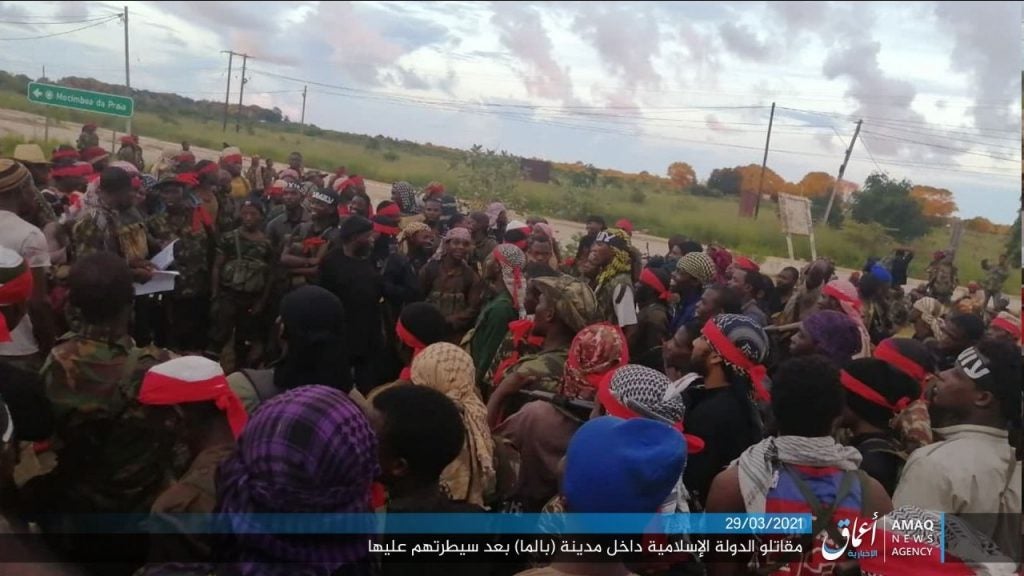Mozambique Government Falsely Claims To Have Secured Palma
Claims by the government of Mozambique to have secured the city of Palma in the country’s north following an attack by fighters from the Islamic State’s Central Africa Province were instantly proven wrong yesterday. Journalists flown in by Mozambique’s military to the neighbouring Afungi Peninsula instead became eyewitnesses to continued combat between army soldiers and IS-CAP fighters, just outside the Total liquefied natural gas project on the peninsula.
The claim of clearing the town came nearly a week after hundreds of IS-CAP fighters attacked the city from three directions, targeting shops, banks and a military barracks and killing dozens of civilians. Thousands of locals and foreigners are reported to have fled Palma by sea, being evacuated by boat to the nearby town of Pemba. Around 200 people are said to have tried taking shelter in the Amarula Hotel, with 180 of them attempting to break out of the besieged hotel in a vehicle convoy. However, the convoy of 17 vehicles was ambushed, with only seven vehicles making it to the beach used as an evacuation point. Seven members of the convoy have been confirmed as killed, with others unaccounted for.
The Dyck Advisory Group private military contractor says that its helicopter crews have managed to rescue some survivors from the convoy, as well as those who chose to remain in the hotel. The South African contractor’s CEO, Colonel Lionel Dyck, stated that the attackers are well armed and uniformed. He said that his contractors have seen “lots” of beheadings “right up on day one”, warning that retaking Palma would be extremely difficult.
The attack is the latest and the worst to date in Mozambique’s three-year insurgency in its northernmost province of Cabo Delgado. IS-CAP had previously taken over the town of Mocímboa da Praia and declared it the capital of its territory, with efforts by Mozambique’s security forces and DAG to retake the city failing. Following the Palma attack, Total has suspended work on its Afungi Peninsula project, as Palma was part of its security perimeter.
Mozambique’s security forces have proven to be ineffective in combating the ever-growing insurgency, as the fall of Mocímboa da Praia and now Palma show. Instead, they are now accused of extrajudicial executions and torture of civilians and of committing sexual violence against civilian women. Similarly, Amnesty International has accused DAG of indiscriminate attacks during operations against IS-CAP fighters, following its hiring after multiple failures by security forces.
Portuguese Foreign Minister Augusto Santos Silva has announced that Portugal would be deploying a small force to Mozambique to assist government forces. Reported to number around 60 special operations force troops which will be tasked with limited operational assistance and training. A Portuguese mission to train Mozambique’s special forces had already been announced in February, before IS-CAP struck Palma.
Despite the fighters having sworn allegiance to the Islamic State, using its symbology and having their exploits publicized in Islamic State media channels, regional analysts are continuing to downplay their ties to the organization, insisting that what is locally known as al-Shebaab (no known relation to the Somali terror group) is merely using Islamic State as branding. Denials have continued even as Islamic State officially claimed credit for the Palma attack, claiming to have killed 55 Mozambican soldiers and more Westerners.

